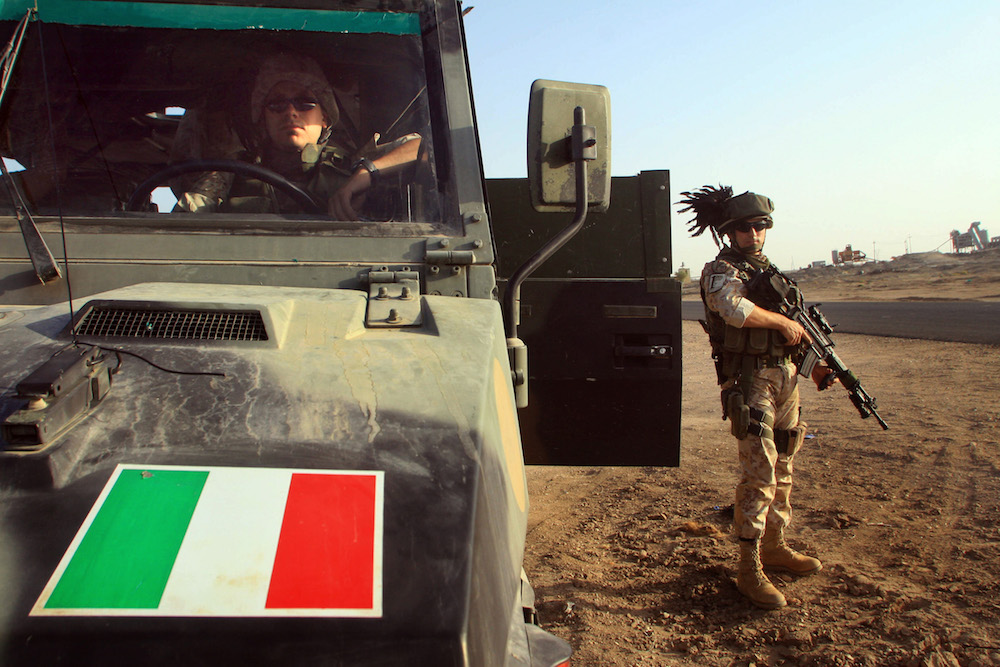DUBAI: With more than 1 million followers on Facebook, Ayat Oraby blurs the lines between reporting and hate speech.
She blatantly expresses her opinions in her articles and videos, which range from anti-Christian rhetoric to support for a religious scholar believed to be the inspiration behind some terrorist groups to allegations against individual politicians for supporting Israel.
A whole section on her personal website calls for the economic boycott of Christians in Egypt, whom she accuses of plotting against Muslims and trying to form their own Coptic state.
Oraby explained in a video posted on YouTube how and why she came to that conclusion, with stories dating back to the times of French colonization.
According to Oraby, Egyptian Christians helped France take over the country, betraying the Muslim populations.
“This is the reason for the call for an economic boycott against them. To tell you the truth, I have been postponing this call for a long time, but now I am asking for all Muslims who are zealous for their religion to heed this call,” she said.
Her Facebook posts contain material targeting Coptic Christian popes in Egypt, such as Shenouda III of Alexandria and Tawadros II.
Oraby called Tawadros a “criminal” and an “arch-killer,” and accused Shenouda of having a sexual relationship with his personal driver.
She also publicly spoke against the celebration of Christmas in Egypt, because some aspects of the festivity are financed by taxpayers, who are a Muslim majority in Egypt.
“You are in a Muslim country with over 95 million Muslims, so why is the TV celebrating Christmas?” she asked in a YouTube video.
BIO
Name: Ayat Oraby
Nationality: Egyptian
Place of residence: New York, US
Occupation: Journalist
Legal status: Emigrated to the US from Egypt in 1993
Medium :YouTube, Twitter, Facebook, Instagram and her website www.ayatoraby.com
Oraby supports her anti-Christian rhetoric with claims that the military controls the church and uses it to store weapons.
She also accuses Christians in Egypt of waging a war against Islam and believes that they are planning to betray the Muslim populace “again.”
Oraby spreads her messages mainly via Twitter and Facebook, where she enjoys followings of more than 540,000 and 1 million, respectively.
The activist’s rhetoric appeals to some people for a variety of reasons, according to Johannes Van Gorp, assistant professor at the American University of Sharjah.
It could be a reactionary political act, trying to bring back lost glory, or to unite against perceived targeting and attacks, Van Gorp said.
Her ideas sound radical and problematic, but she is able to express them because she lives in the US. As long as the speech does not result in clear and present danger, “it is protected under the First Amendment,” Van Gorp said.
Oraby first moved to the US about a year after starting her career as an anchor on Egyptian TV’s Channel 3 in 1992. A few years later, in 1996, she left home to co-host the famous Good Morning Egypt show on Channel 1.
Opinion
This section contains relevant reference points, placed in (Opinion field)
In 1999, she returned permanently to the US and worked as a foreign correspondent for Egyptian TV. During her stay, she founded and chaired Noon Al-Niswa, the first Arab women’s magazine in the US.
Oraby supports the Muslim Brotherhood and openly adheres to Sayyid Qutb’s ideology.
His ideology, sometimes called Qutbism, is believed to have inspired several radical groups, including Al-Qaeda.
The academic John Calvert explores Qutb’s influence in his book “Sayyid Qutb and the Origins of Radical Islamism.”
“Given the dire condition of the world, Qutb said that Muslims had a duty to reactivate the principle of jihad (literally, ‘striving’) against the jahili forces responsible for humankind’s ‘misery and confusion’,” Calvert said.
Qutb was also a member of the Muslim Brotherhood, which he joined in the 1953.
Oraby’s stance on Egyptian authorities has transformed over the years, from support to extreme hostility. She uses a cover image of ousted President Muhammad Mursi on Facebook and often publishes posts attacking Egyptian leader Abdel Fattah El-Sisi.
In earlier reports, the US-based journalist accused Egyptian soldiers killed in a fire fight with militants of being paid by El-Sisi to murder unarmed Muslims during the “Rabaa massacre.”
But her accusations against the national army do not end there. She nicknamed it the “Misraeli army,” alluding to an allegiance with Israel, and has repeatedly called for it to be dismantled.
Oraby attacked several heads of states and political leaders, such as Turkish President Recep Tayyip Erdogan and former Saudi King Faisal, accusing some of propagating a false image of Islam and others of giving away Palestine to Israeli occupation.




